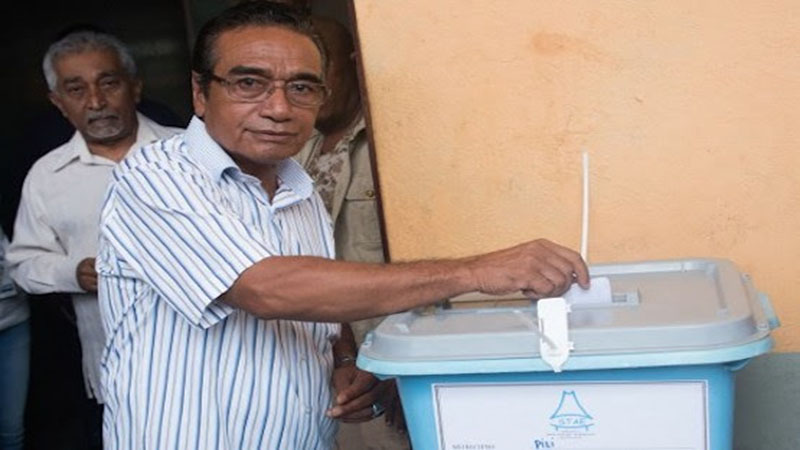MEDIAONETIMOR-Polls seen as major democratic test for Timor Leste, former freedom fighter tipped for victory
Timor-Leste headed to the polls March 20 to elect a new president in the first election entirely managed by the tiny nation’s electoral commission following the end of a U.N. peacekeeping mission in 2012.
The elections were being seen as a test for the fledgling democracy.
Eight candidates were in the running, however former independence fighter, Francisco “Lu-Olo” Guterres, believed he had enough support to garner the more than 50 percent of the vote needed to avoid an April 20 run-off against his closest rival Antonio da Conceicao of the Democratic Party.
Guterres, who is standing for the presidency for a third time, has the backing of the popular Xanana Gusmao, who has served as prime minister and president since the former Portuguese colony gained its independence from Indonesia 15 years ago to become Asia’s youngest nation.
The presidency is largely a symbolic role, but the president will have to work closely with the government that is formed after legislative elections slated for July, observers said.
Whoever wins the presidency will replace Jose Maria de Vasconcelhos, better known as Taur Matan Ruak, and would have to help overcome some critical economic problems in the nation of 1.2 million people, which include dire poverty, high unemployment and what to do with the country’s petroleum fund.
The fund was set up to help develop the nation from surplus revenue from oil and gas sales that are expected to run dry in the next few years.
The new government, according to NGO Lao Hamutuk, needs to reduce its dependency on oil and gas and “develop non-oil economy, increase domestic revenue and use public funds wisely.”
“There is need to capitalize on agriculture and tourism,” it said, since the majority of Timor-Leste citizens are farmers.
Bishop Virgilio do Carmo da Silva of Dili said one of the biggest problems is unemployment running at about 11 percent, according to official figures with many young people unable to find work after graduating from high schools and universities.
“If this is not solved, it will become a serious problem in the next five years, and could cause national instability,” Bishop Da Silva told ucanews.com.
Salvador Pereira da Costa, a sociology professor, said the poor quality of education and health services are some concerns the new president should address.
“Timor-Leste has a sufficient number of schools, but the quality of education remains poor,” he said.
Malnutrition among children is also as a serious problem, particularly in remote areas, due to poverty and also a poor understanding among parents about nutrition.
“The next president must use state funds for the needs of people, even those in the remotest areas of Timor-Leste,” he said.(Thomas Ora)





Discussion about this post